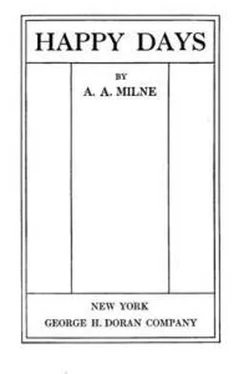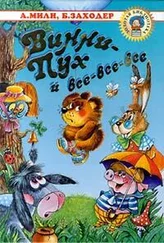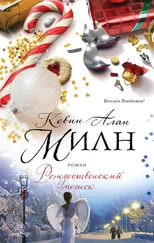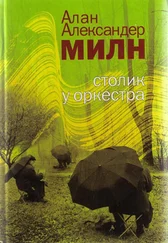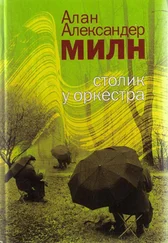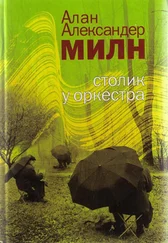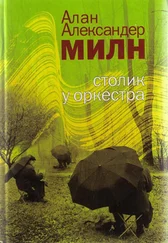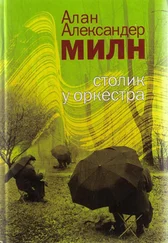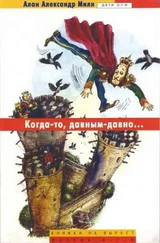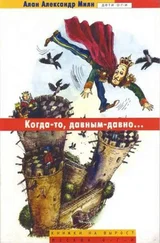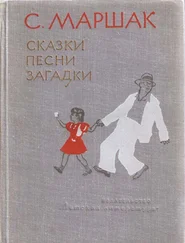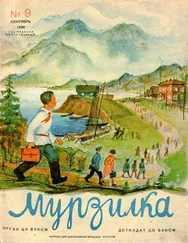"What's 'at?" said Margery, pointing to the next one.
I looked at her in horror. Then I began to talk very quickly. "There was once a balloon," I said rapidly, "a dear little boy balloon—I mean toy balloon, and this balloon was a jolly little balloon just two minutes old, and he wasn't always asking silly questions, and when he fell down and exploded himself they used to wring him out and say, 'Come, come now, be a little airship about it,' and so―"
"What's 'at?" asked Margery, pointing to the top button.
There was only one way out of it. I began to sing a carol in a very shrill voice.
All the artist rose in Margery.
"Don't sing," she said hurriedly; "Margie sing. What shall Margie sing, uncle?"
Before I could suggest anything she was off. It was a scandalous song. She began by announcing that she wanted to be among the boys, and (anticipating my objections) assured me that it was no good kicking up a noise, because it was no fun going out when there weren't any boys about, you were so lonely–onely–onely….
Here the tune became undecided; and, a chance word recalling another context to her mind, she drifted suddenly into a hymn, and sang it with the same religious fervour as she had sung the other, her fair head flung back, and her hazel eyes gazing into Heaven….
I listened carefully. This was a bit I didn't recognise…. The tune wavered for a moment … and out of it these words emerged triumphant—
"Talk of me to the boys you meet,
Remember me kindly to Regent Street,
And give them my love in the―"
"What's 'at, uncle?"
"That," I said, stroking it, "is dear uncle's nose."
"What's―"
By the way, would you like it all over again? No? Oh, very well.
"In the afternoon they came unto a land
In which it seemed always afternoon."
I am like Napoleon in that I can go to sleep at any moment; I am unlike him (I believe) in that I am always doing so. One makes no apology for doing so on Sunday afternoon; the apology indeed should come from the others, the wakeful parties….
"Uncle!"
"Margery."
"Will you come and play wiv me?"
"I'm rather busy just now," I said with closed eyes. "After tea."
"Why are you raver busy just now? My baby's only raver busy sometimes."
"Well then, you know what it's like; how important it is that one shouldn't be disturbed."
"But you must be beturbed when I ask you to come and play wiv me."
"Oh, well … what shall we play at?"
"Trains," said Margery eagerly.
When we play at trains I have to be a tunnel. I don't know if you have ever been a tunnel? No; well, it's an over–rated profession.
"We won't play trains," I announced firmly, "because it's Sunday."
"Why not because it's Sunday?"
(Oh, you little pagan!)
"Hasn't Mummy told you about Sunday?"
"Oh, yes, Maud did tell me," said Margery casually. Then she gave an innocent little smile. "Oh, I called Mummy Maud," she said in pretended surprise. "I quite fought I was upstairs!"
I hope you follow. The manners and customs of good society must be observed on the ground floor where visitors may happen; upstairs one relaxes a little.
"Do you know," Margery went on with the air of a discoverer, "you mustn't say 'prayers' downstairs. Or 'corsets.'"
"I never do," I affirmed. "Well, anyhow I never will again."
"Why mayn't you?"
"I don't know," I said sleepily.
"Say prehaps."
"Well— prehaps it's because your mother tells you not to."
"Well, 'at's a silly fing to say," said Margery scornfully.
"It is. I'm thoroughly ashamed of it. I apologise. Good night." And I closed my eyes again….
"I fought you were going to play wiv me, Mr. Bingle," sighed Margery to herself.
"My name is not Bingle," I said, opening one eye.
"Why isn't it Bingle?"
"The story is a very long and sad one. When I wake up I will tell it to you. Good night."
"Tell it to me now."
There was no help for it.
"Once upon a time," I said rapidly, "there was a man called Bingle, Oliver Bingle, and he married a lady called Pringle. And his brother married a lady called Jingle; and his other brother married a Miss Wingle. And his cousin remained single…. That is all."
"Oh, I see," said Margery doubtfully. "Now will you play wiv me?"
How can one resist the pleading of a young child?
"All right," I said. "We'll pretend I'm a little girl, and you're my mummy, and you've just put me to bed…. Good night, mummy dear."
"Oh, but I must cover you up." She fetched a table–cloth, and a pram–cover, and The Times , and a handkerchief, and the cat, and a doll's what–I–mustn't–say–downstairs, and a cushion; and she covered me up and tucked me in. "'Ere, 'ere, now go to sleep, my darling," she said, and kissed me lovingly.
"Oh, Margie, you dear," I whispered.
"You called me 'Margie'!" she cried in horror.
"I meant 'Mummy.' Good night."
One, two, three seconds passed rapidly.
"It's morning," said a bright voice in my ear. "Get up."
"I'm very ill," I pleaded; "I want to stay in bed all day."
"But your dear uncle," said Margery, inventing hastily, "came last night after you were in bed, and stayed 'e night. Do you see? And he wants you to sit on him in bed and talk to him."
"Where is he? Show me the bounder."
"'Ere he is," said Margery, pointing at me.
"But look here, I can't sit on my own chest and talk to myself. I'll take the two parts if you insist, Sir Herbert, but I can't play them simultaneously. Not even Irving―"
"Why can't you play them simrulaleously?"
"Well, I can't. Margie, will you let me go to sleep?"
"Nope," said Margery, shaking her head.
"You should say, 'No thank you, revered and highly respected Uncle.'"
"No hank you, Mr. Cann."
"I have already informed you that my name is not Bingle and I have now to add that neither is it Cann."
"Why neiver is it Cann?"
"That isn't grammar. You should say, 'Why can it not either?'"
"Why?"
"I don't know."
"Say prehaps."
"No, I can't even say prehaps."
"Well, say I shall understand when I'm a big girl."
"You'll understand when you're a big girl, Margery," I said solemnly.
"Oh, I see."
"That's right. Now then, what about going to sleep?"
She was silent for a moment, and I thought I was safe. Then,
"Uncle, just tell me—why was 'at little boy crying vis morning?"
"Which little boy?"
"Ve one in 'e road."
"Oh, that one. Well, he was crying because his Uncle hadn't had any sleep all night, and when he tried to go to sleep in the afternoon―"
"Say prehaps again."
My first rejected contribution! I sighed and had another shot. "Well, then," I said gallantly, "it must have been because he hadn't got a sweet little girl of three to play with him."
"Yes," said Margery, nodding her head thoughtfully, "'at was it."
"Is that you, uncle?" said a voice from the nursery, as I hung my coat up in the hall. "I've only got my skin on, but you can come up."
However, she was sitting up in bed with her nightgown on when I found her.
"I was having my bath when you came," she explained. "Have you come all the way from London?"
"All the way."
"Then will you tell me a story?"
"I can't; I'm going to have my dinner. I only came up to say good night."
Margery leant forward and whispered coaxingly, "Will you just tell me about Beauty and 'e Beast?"
"But I've told you that such heaps of times. And it's much too long for to–night."
Читать дальше
